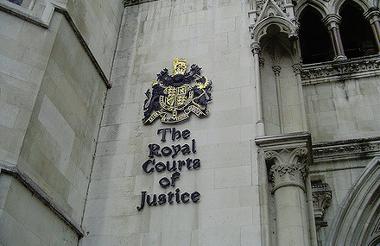Charity property freeholders, London estates and institutional investors have lost a legal challenge that sought to amend the government’s Leasehold and Freehold Reform Act (LFRA) 2024.
Last week, the High Court dismissed six linked judicial review claims that key provisions of LFRA 2024 are incompatible with the European Convention of Human Rights (ECHR).
One of the reviews, initiated by John Lyon’s Charity in September 2024, argued that the charity could lose around £1.4m due to the abolition of “marriage value” in the act.
Marriage value refers to an increase in a property’s value that arises when its lease is extended, some of which is currently paid to the landowner.
John Lyon’s Charity, a freeholder of several properties itself, previously said that while it was not opposing leasehold reform, it asked for a “narrow and reasonable exemption for us”.
“LFRA 2024 doesn’t currently recognise the unique position of such charities, even though exemptions have been made for organisations like the Crown Estate, the National Trust, and the Duchies of Lancaster and Cornwall,” it said.
“The financial impact of this law would redirect millions from a children’s charity into private wealth – significantly reducing what we can provide to the thousands of young people we support each year.”
In their judgment, however, justices Holgate and Foxton concluded that “there’s no sufficient basis for challenging” the decision not to exempt charities from the removal of marriage value.
£1.37m losses
John Lyon’s Charity relies on historic property endowments in St John’s Wood, which fund vital work with children and young people.
Its total assets are valued at £386m, while it has a total returns policy that involves spending 3.5% of the value of its assets every year.
In 2023-24, assets in the form of freehold interest in property comprised 10% of its total assets. Of this, £10.5m represents assumed marriage value and 25% represents assumed enfranchisement premiums.
During that year, income from enfranchisement was almost a quarter of the charity’s total annual income, and income from marriage value represented 10%.
John Lyon’s Charity estimated that ending the marriage value would result in a reduction in its annual grantmaking ability of £1.37m.
In their judgment, the justices said the government “rightly acknowledged the excellent work John Lyon’s Charity did, but didn’t admit the extent of any impact on the charity’s grant-making capacity of the removal of marriage value”.
“While we’re unable to reach any conclusions as to the precise impact, we accept that the removal of marriage value is likely to have an appreciable effect on the income of John Lyon’s Charity, and its grant-making capacity,” they wrote.
“The process of making enfranchisement cheaper for tenants – one of the stated objects of this legislation – will inevitably impact the amount received by the holder of a significant number of freeholds in prime central London like John Lyon’s Charity.”
‘Considerable competitive advantage’
To support its legal arguments, John Lyon’s Charity sought to rely on LFRA 2024’s treatment of the National Trust and charitable or certified community housing trusts.
However, the justices said “the holding of property formed part of the core charitable mission of those entities, rather than a commercial investment activity, the proceeds of which were intended to fund other charitable activities”.
“We conclude that the distinction drawn by the LFRA 2024 in this respect, and the basis for it articulated in the passages in the ECHR memorandum to which we’ve referred, strikes a fair balance and falls within the legislature’s margin of appreciation,” they said.
“Nor, if the matter were to be argued with reference to article 14 of the ECHR, are we persuaded that the differential treatment of the National Trust and John Lyon’s Charity (and other charities whose holding of freeholds forms part of their investment activity rather than core charitable objects) strikes an unfair balance or otherwise falls outside parliament’s margin of appreciation.”
They concluded that, as investors, charities operate in the same market as others investing in the same field, and the exemption would place them at “a considerable competitive advantage as against other investors in the same asset class”.
John Lyon’s Charity: ‘Disappointing’ decision
In a statement, John Lyon’s Charity said: “We’re disappointed by the decision that John Lyon’s Charity hasn’t been granted an exemption when others in the charitable sector have.
“While we support the principle of leasehold reform, this ruling has implications for how the charity generates income.
“Please be assured that our commitment to funding vital grassroots services for children and young people remains unchanged.
“We’re carefully reviewing the impact of this judgment and considering next steps to ensure we can continue to deliver on our mission.”












